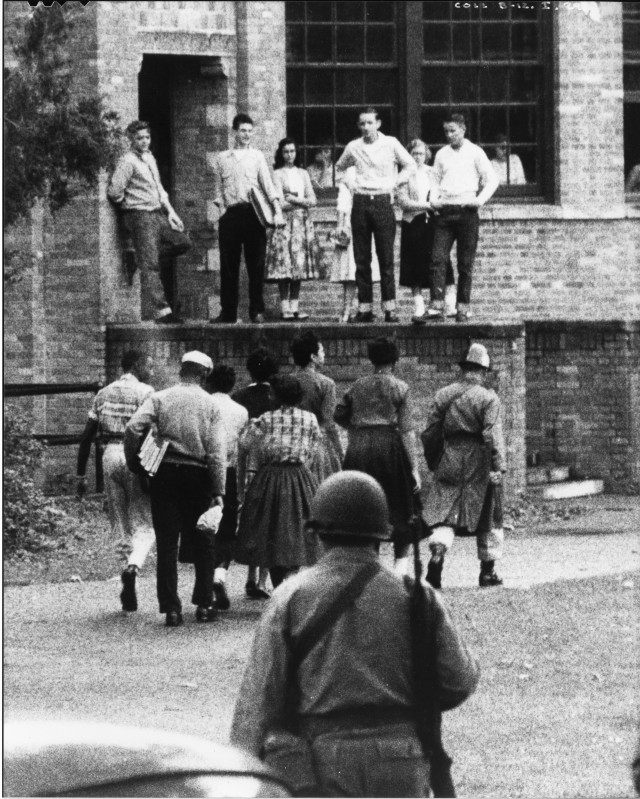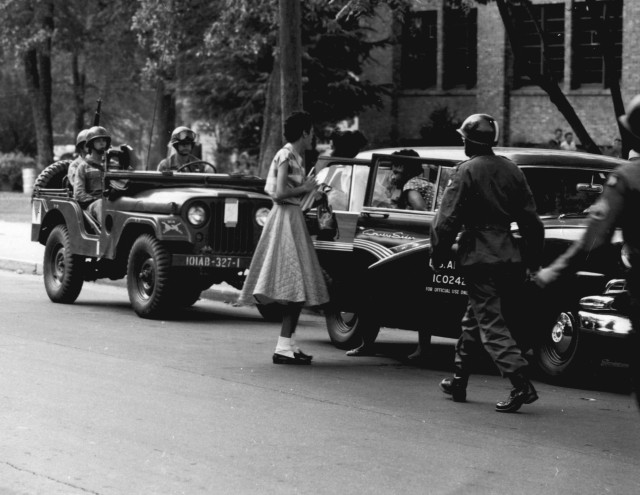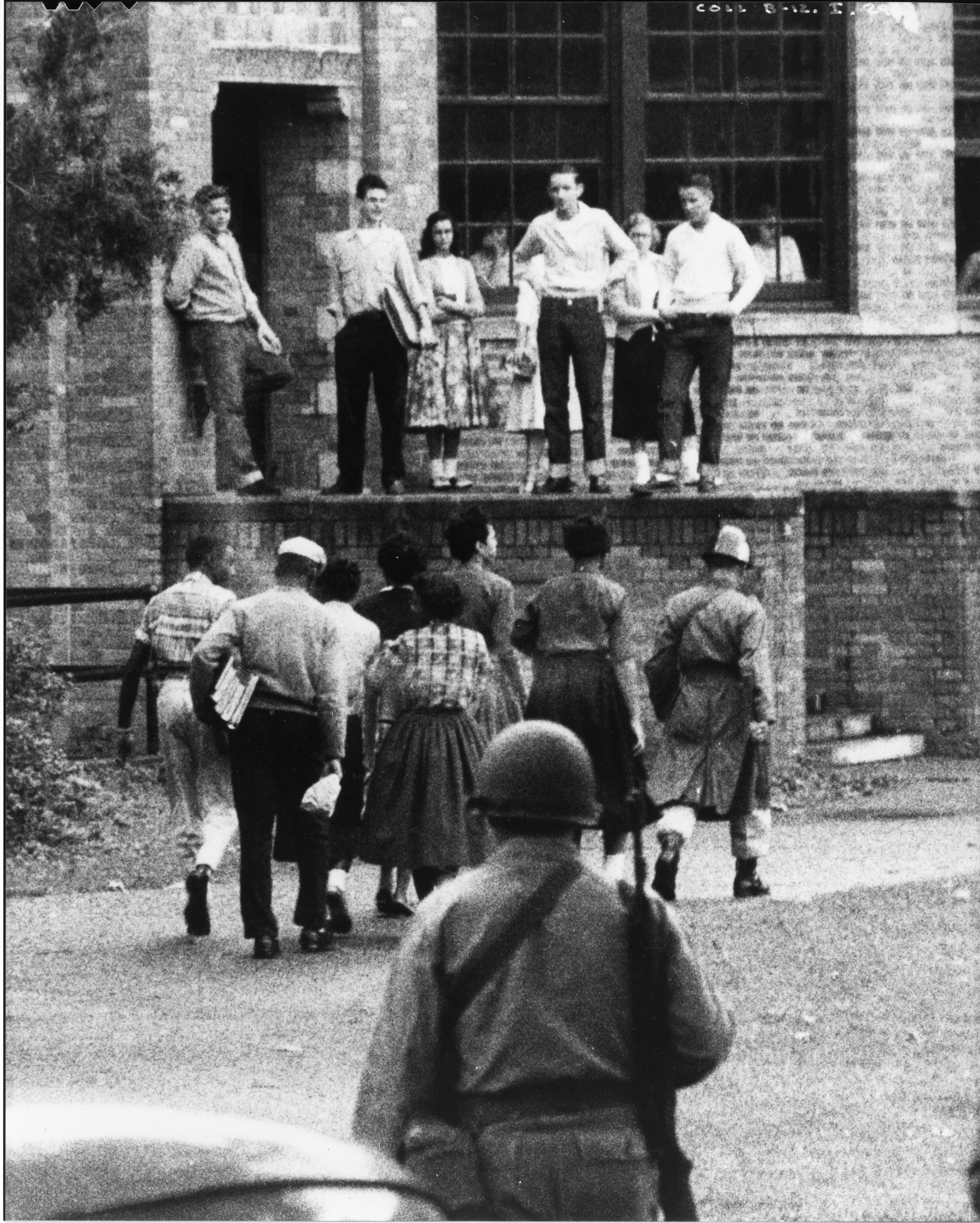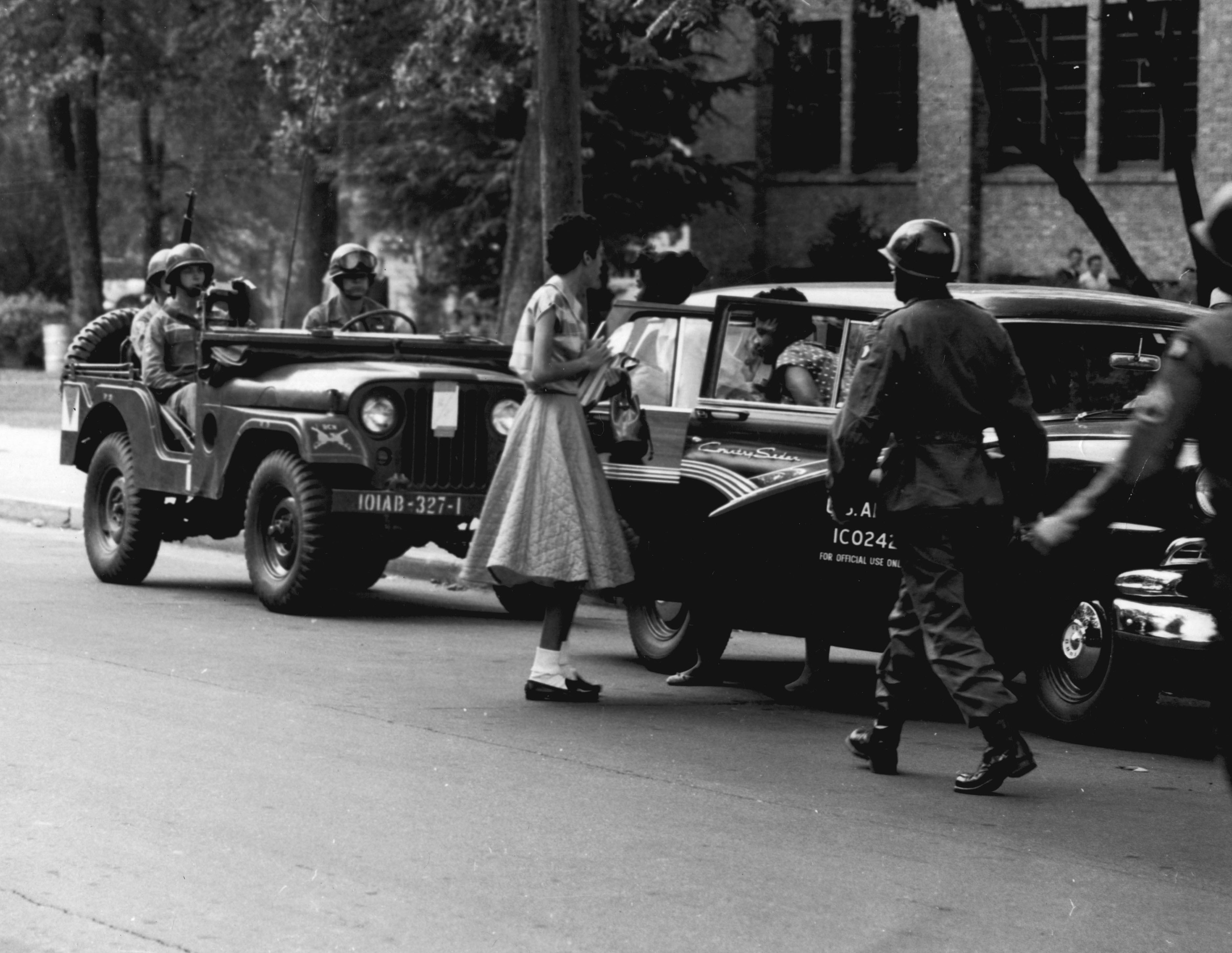FORT CAMPBELL, Ky. (Army News Service, Sept. 17, 2007) - Fifty years ago, the 101st Airborne Division made history as troops deployed to Little Rock, Ark., to escort nine black high school students into the all-white Central High School amid racial protests.
Nine Soldiers from the 101st Airborne Division will redeploy to Little Rock, Ark., for a 50th anniversary celebration Sept. 24 to escort the same students back into the school, once again ensuring their safety.
The event is part of a dedication ceremony, which will mark the opening of the Central High School National Historic Site, a visitor's center built by the National Parks Service. For more information, visit www.nps.gov/chsc.
The students, who became known as the Little Rock Nine, comprised the first black students to attend a previously-white school in Little Rock after Arkansas Governor Orval Faubus refused to follow federal integration laws established by the Supreme Court in their 1954 ruling, Brown versus Board of Education.
The deployment of Army troops to the city was not a big surprise because newspapers had been covering the conflict between President Eisenhower and Governor Faubus for weeks.
Within an hour of President Eisenhower's final decision Sept. 24, 1957, Soldiers from the 1st Airborne Battle Group, 327th Infantry Regiment, were airborne and the segregation of Central High School was effectively over.
"The message we put out was that we were Soldiers, and we do what the president says - whether others believe in it or not," said Ivan Worrell, a public information officer with the division in 1957.
The Army itself had already set the bar for desegregation in 1952, when it finished integrating white and black units.
The Army's job was to protect the school and the students, Mr. Worrell said, "and not just the black students but the whole school."
The first couple of days were the most intense, said Jack Damron. A young lieutenant at the time, he was part of the convoy that escorted the Little Rock Nine to and from school.
"There was a look of astonishment and bewilderment on many faces as our convoy rolled through the city on the way to Central High School," Mr. Damron said, mentioning residents were mostly stunned by the military presence.
"For the first two or three days there was a certain amount of tension, but it was mostly on the part of a few hecklers who crossed the line and were moved back from the school," he said.
The convoy was subjected to a few choice words by the locals, but that was about it.
"This happened for a few days and then it just ceased," Mr. Damron said, adding that after the third day, there was more media across from the school than curiosity seekers.
"I was honored to be chosen as the escort officer for the students," he said. "It was a grave responsibility and fortunately there were no incidents or threats made against the students while they were in my charge."
This was just another example of the 101st Abn. Div. being called on to do a job or a mission that the president of the United States had outlined, Mr. Worrell said. "We were selected to do that job, and I think we did it in a very professional manner."
Mr. Worrell believes the Soldiers in Little Rock gave those who watched through newspapers or television a solid impression of the 101st Abn. Div. and the U.S. Army. Their fatigues were laundered and starched every day, giving them a professional appearance to go with their professional demeanor.
"There were no sloppy Soldiers on the street," Mr. Worrell said. "The Soldiers were always sharp; they looked good."
He believes the nation had a positive view of the troops in Little Rock, despite a Time magazine cover featuring a Soldier thrusting a bayonet toward a civilian. He pointed out that the Soldier in the photograph was not being overly aggressive.
"The person who would have been the beneficiary of the bayonet was getting too close," Mr. Worrell said, mentioning a line the Soldiers manned to keep people from crossing. "That civilian was not where he was supposed to be."
Soldiers from the 101st Abn. Div. will redeploy to Little Rock, Ark., for a 50th anniversary celebration Sept. 22-24.
(Gregory Frye writes for the Fort Campbell "Courier.")




Social Sharing